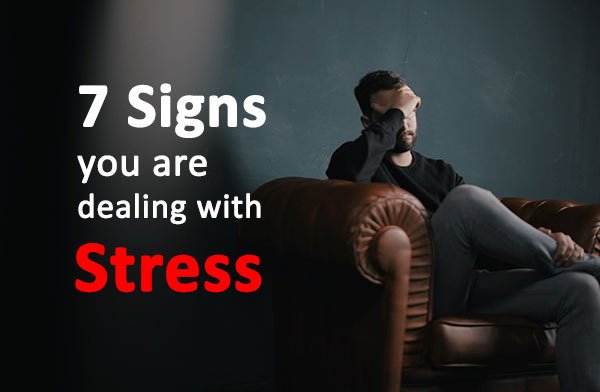Talk to a Psychologist for Online Counselling
Book Appointment 100% Private & Secure
Convenient, 100% anonymous, safe, certified professional counseling online.Food is an essential part of our life and eating it is a simple form of activity. But for some people, it is quite a complex activity which creates issues with their body as well as their mind.
Eating disorder is a mental disorder which involves persistent disturbance in an individual’s eating behavior. This disturbance can eventually affect one’s physical and mental health and degrade the quality of life.
This disorder is linked to the societal standards of physical appearance and the associated pressure with it. Earlier, in India, a well-rounded body was a sign of wealth and health but after globalization, urbanization and modernization, a thin figure is being considered good and desirable.


The prevalence of eating disorder is continuously increasing among young adults of India, both males and females are at a higher risk. People who are suffering from eating disorder experience body dissatisfaction which is associated with negative perception of health, anxiety, low self-confidence and high stress levels.
Now, let’s talk about various types of eating disorders:
Types of Eating disorder
1. Anorexia Nervosa
It means lack of appetite provoked by nervousness. It involves pursuit of thinness that is unachievable and leads to significantly low body weight. People either starve themselves to extreme limits that their bones starts showing (extreme thinness) but still don’t feel satisfied with their body weight.
- Fear of gaining weight
- Eating nothing or very less
- Distorted or negative body image
“I have a rule when I weigh myself. If I have gained weight then I’ll starve for the rest of the day but if I have lost, then I’ll starve too.”


2. Bulimia Nervosa
Like Anorexia, in Bulimia also, the goal is to be thin but the way of doing that is different. People engage themselves in binge eating but afterwards, when they feel guilty, they attempt to purge to avoid weight gain. Purging behaviors include vomiting, fasting, laxatives and exercises.
“I eat or drink in secrecy.”


3. Binge Eating Disorder
It has become a lifestyle disease and the most chronic illness among young generation. They eat large amounts of food due to lack of control over their eating patterns. But they don’t engage in purging behavior and thus become obese or extremely overweight.


4. Avoidant/Restrictive Food Intake Disorder
In this, people don’t eat food either due to lack of interest in eating or doesn’t like the food. It leads to poor body weight and low nutrition intake. It commonly happens among children below 7 hence, this disorder interferes with their physical development.
5. Rumination Disorder
In this, people bring back food in the mouth that has been swallowed, chew it again and then swallow it or spit it out. It occurs during the beginning time of eating the meal. It mostly occurs in childhood and often disappears but if it doesn’t, then, it can cause severe malnutrition and weight loss.


6. Pica disorder
This disorder involves people eating things that are not meant for eating purposes like chalk, paper, hair, cloth, soil or detergent. It can be very dangerous to eat these things and can even lead to death if not stopped. It can occur at any age. It mostly occurs among those people who are already suffering from a mental illness like schizophrenia, intellectual disability and autism.
Causes of Eating disorder
1. Flawed thinking
The idea of Perfectionism which involves achieving high standards without tolerance of any mistake can be a triggering factor in eating disorder. Perfectionism is basically a personality trait that puts people at higher risk for developing an eating disorder.
People who are perfectionist want that “perfect body” and go to extreme measures to achieve that and when those extreme measures go out of hand and become uncontrollable, thus, it turns into an eating disorder. In case of bulimia, this perfectionism is the reason that people go for purging cycle after binge eating.


2. Negative Body Image
The perception of body size and appearance gets hampered as people can’t differentiate between the body which is thin and healthy and which is extremely thin and unhealthy. Such perceptual biases are often seen in the people having eating disorder.
For example, when a person wants to be thin and starts dieting with low calorie intake, often can’t set the boundary and is not able to stop and keeps on dieting because of negative body image. Even 1-2kgs increase in body weight can be the source of anxiety and stress for these people.
3. Cultural factor
Particularly, females suffer from anorexia nervosa and bulimia nervosa more than males. It happens because thin body of female is considered more attractive and desirable by males. When people internalize the thin ideal body, they start their journey towards developing eating disorder. It includes body dissatisfaction, dieting and low self-esteem. Especially, models, dancers and people working in fashion or on social media are very much concerned about their body weight and physical appearance.
4. Biological factor
Sometimes, brain abnormalities and hormonal fluctuations also can be the reason for eating disorder. A part of brain called hypothalamus and hormone called serotonin, both regulate appetite and feeding behavior. So, when there is some problem in the proper functioning of hypothalamus and serotonin, eating disorder can occur.


Signs of Eating disorder
If you are suffering from an eating disorder, then, identifying the signs and seeking professional treatment will help you to recover faster. Always stay aware of the signs for yourself and for others also. Some of the signs are:
- Sudden weight loss or weight gain
- Preoccupation with weight, calories, food intake and carbs
- Practicing Food Rituals
- Skipping meals or eating in small amounts
- Extremely obsessed with body appearance and size
- Extreme mood fluctuations
- Flawed perception of body appearance and size
- Refusal to eat around others
- Low Self-esteem and Body Image
- Frequent episodes of binge eating
Seek Professional Help at OnlineCounselling4U
If you think that you may have experienced some of the above mentioned signs, then, don’t hesitate to seek professional help from the Certified Psychologists and Counselors available at OnlineCounselling4U.
Psychologists at OnlineCounselling4U are experts who are knowledgeable and have a lot of experience of dealing with mental health issues. Making the decision of getting counseling can be overwhelming but OnlineCounselling4U makes everything easy for you. It provides a great and varied team of Psychologists, process of booking the appointment is very smooth and convenient. So, feel free to book you session at OnlineCounselling4U.


Call us to book a session today.
Contact us at +91 9811335150
Email us – info@onlinecounselling4u.com
Follow us on Facebook or Instagram
Talk to a Psychologist for Online Counselling
Book Appointment 100% Private & Secure
Convenient, 100% anonymous, safe, certified professional counseling online.

